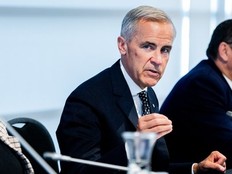Canada must show strength in standing up to Iran threat, Israeli politician says
Israel's deputy foreign minister says U.S. strike on Iran's nuke program was point of moral clarity, and called on Canada to show leadership

Article content
OTTAWA — The world needs more Churchills and fewer Chamberlains.
In an interview with the Toronto Sun, Israel’s Deputy Foreign Minister Sharren Haskel said American strikes against Iran’s nuclear program — augmenting work already carried out by Israel — represent U.S. President Donald Trump following through on what previous presidents and other world leaders have only talked about: Facing down the danger of a nuclear-armed Iran.
“The president is acting on what every president has said, and what every leader of the free world has said, to make sure (Iran) cannot acquire (nuclear missiles,)” Haskell said.
She pointed to comments made by German Chancellor Friedrich Merz during the G7 in Alberta praising Israel for doing the world’s “dirty work,” and also comments by Prime Minister Mark Carney, who on Sunday described Iran’s nuclear program as a “grave threat” to international security.
“What happened (Saturday) was a moment for Trump of clear moral clarity, the world need more leaders like Churchill and much fewer Chamberlains,” Haskell said on Sunday.
“It’s a historic time, leaders need to make harsh decisions and choose what side of history they’re going to be.”
Haskell pointed to Canada being a popular haven for fleeing Iranian officials, and called on the government to take action.
“We talk about protection of humanity. Who’s protecting Canadians?” the Toronto-born Knesset member said.
“(Canada) talks about diplomacy and preventing weapons of mass destruction from one of the most murderous and cruel regimes, one the biggest destabilizers of the world, the biggest funder of terrorism — what tools are you going to use? Diplomacy? You’ve tried that. They fooled you. They deceived you. Yet you continue.”
With Canada holding the presidency of the G7, Haskell said Canada has an opportunity to choose strength and leadership, but needs to put action behind words.
Iran hosts the largest ballistic missile program in the Middle East — featuring an arsenal of short-range missiles including the Fateh and Zolfaghar devices capable of striking targets up to 700 km, and longer-range Ghadr, Sejjil and Khorramshahr units, capable of striking targets thousands of kilometres away.
While Iran has so far been mounting conventional warheads atop their ballistic missiles, Israel has said its actions are to prevent Iran from developing nuclear warheads small and light enough to be carried aloft.
“(Iran) are extremely advanced on their nuclear military program, and that’s why we’ve had to eliminate — not just the enrichment facility, the nuclear reactor, the conversion facility, the leadership that was leading this program with all the knowledge that they’ve acquired on how to form a nuclear weapon is part of it,” Haskell said.
“But the other side is that you need to put it on a ballistic missile — and that program was so advanced and was accelerated in recent months.”
A nuclear-armed Iran, she said, represents an existential danger not only to Israel, but the entire world.
“Can you imagine this murderous, vile regime — with everything it’s doing to its own population — what it can do to the entire world with 10,000s of them?” Haskell said.
“We are eliminating also the ballistic missile program, with its factories and warehouses and storage so that they cannot pose another threat on humanity.”













Postmedia is committed to maintaining a lively but civil forum for discussion. Please keep comments relevant and respectful. Comments may take up to an hour to appear on the site. You will receive an email if there is a reply to your comment, an update to a thread you follow or if a user you follow comments. Visit our Community Guidelines for more information.